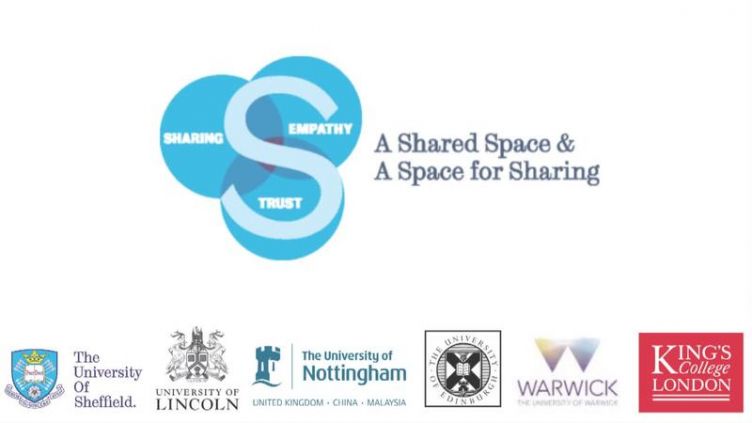Life-threatening, life-shortening, and long-term conditions
Qualitative analysis of online information sharing by people living with or affected by a, life-threatening, life shortening or long-term condition.
About
Researchers have started to explore how people use web forums and social media for their health.
However, we know very little about the processes of sharing of information and experiences that take place in online communities set up for people with specific health conditions. In particular, there has been relatively little research on the role of trust and empathy in mediating this sharing.
This project investigated how people who are living with or affected by a life-shortening, life threatening or long-term conditions, share information and experiences in online discussion health forums.
Research methods
We used two methods to collect information about online sharing:
- An extensive in-depth, qualitative analysis of information posted online by people accessing online health forums for the following health conditions:
- Breast cancer, a condition with varied outcomes e.g. breast cancer can be life-shortening, but improvements in ten year survival mean that for many breast cancer is a long-term condition (https://www.cancerresearchuk.org/health-professional/cancer-statistics/statistics-by-cancer-type/breast-cancer/survival)
- Motor Neurone Disease (also known as Amyotrophic Lateral Sclerosis) is a life-shortening condition.
The research focused on sharing that takes place within online health forums. worked with two UK health charities who supported us in the research: Breast Cancer Care, and the Motor Neurone Disease Association. We worked in an ethical manner to undertake our analyses of this information sensitively.
- Semi-structured interviews with the following groups: -
- People living with breast cancer or motor neurone disease who access online health forums
- Forum moderators who oversee the day-to-day running of online health forums
Key findings
Development of trust in online health forums
- Forum users developed trust in online health forums over time, but trust is not fixed and may grow or diminish. Trust was influenced by key processes: -Structural factors, such as, the forum procedures and guidance (e.g. the role of the moderator in screening initial posts, welcoming new users, and checking posts to correct any misleading information)
- Relational processes, e.g. forum users who demonstrated sensitivity for other users were considered more trustworthy (this was demonstrated though thoughtful sharing practices)
- Temporal influences. Trust developed over time, e.g, trust in the forum may grow as a result of getting to know other users.
- External factors: trust in the forum was influenced by experiences outside the forum e.g. difficult experiences outside the forum may positively influence perceptions of trust in the online health forum.
Further reading: Development of Trust in an Online Breast Cancer Forum: A Qualitative Study
Sharing and empathy in digital spaces
- Online health forums provide support with empathy. Empathy develops and operates through shared experience, connections, and through shared knowledge.
- Shared experiences – Experiences of receiving a diagnosis and living with a serious health condition helped form a shared emotional backdrop and common understanding within the forums.
- Empathy developed through differing types of connections e g. connecting to a community of people living with the same health condition; recognising the online health forum as a meaningful space providing unique understanding, comfort, and support; and finding a supportive community to share experiences and mitigate feelings of isolation.
- Connecting with similar people. Forum users were drawn to or sought out people sharing similarities, e.g. sharing the same diagnosis, symptoms, or circumstances. Empathy flourished within relationships fostered by similarity.
- Connecting within relationships. Relationships grew overtime as forum users shared posts and got to know each other and friendships were formed. Users provided empathetic support for their forum friends, e.g. contacting friends after a hospital appointment.
- Connected by shared emotions. Forum users all shared and recognised the emotional impacts of living with a health condition. This emotional understanding informed and motivated the provision of empathetic support on the forums e.g. forum users afforded greater support to users experiencing intense anxiety.
- Shared knowledge. Forum users used insights gained from direct experiences of living with a health conditions to inform empathetic support.
Further reading: Sharing and Empathy in Digital Spaces
The findings provide insights into how trust and empathy can be facilitated in online environments, whilst they also tell us what might contribute to under-sharing and loss of trust between individuals interacting in these spaces.
What we learnt from the project will be of interest to charities and health organisations that want to explore ways of using digital environments to deliver and/or enhance their support services.
Articles
Publications
Bath, P., & Ellis, J. (2015, July 21). Save your outrage: online cancer fakers may be suffering a different kind of illness. The Conversation. Available from http://theconversation.com/save-your-outrage-online-cancer-fakers-may-be-suffering-a-different-kind-of-illness-44277
Hargreaves, S., Bath, P. A., Duffin, S., & Ellis, J. (2018). Sharing and Empathy in Digital Spaces: Qualitative Study of Online Health Forums for Breast Cancer and Motor Neuron Disease (Amyotrophic Lateral Sclerosis). Journal of Medical Internet Research, 20(6), e222. https://doi.org/10.2196/jmir.9709
Lovatt, M., Bath, P. A., & Ellis, J. (2017). Development of Trust in an Online Breast Cancer Forum: A Qualitative Study. Journal of Medical Internet Research, 19(5), e175. https://doi.org/10.2196/jmir.7471
Richardson, J., Bath, P., Ellis, J., & Lovatt, M. (2015). A Shared Space and a Space for Sharing: Online Health Forums & Digital Exclusion. Blog, Good Things Foundation. Available from https://www.goodthingsfoundation.org/news-and-blogs/blog/shared-space-and-space-sharing-online-health-forums-digital-exclusion
Conference presentations
Bath, P.A., Ellis, J., Hargreaves, S., & Lovatt, M. Empathy, Sharing and Support Among Users of a Forum for People with MND. 27th International Symposium on ALS/MND. Dublin. 2016.
Ellis, J., Lovatt, M., & Bath, P. A. Online sharing and support among users of an MND forum. 26th International Symposium on ALS/MND. Orlando, Florida. 2016.
Ellis, J., & Bath, P. A. Information sharing among people and carers of people with a terminal, life- threatening or chronic illness. 17th International Symposium on Health Information Management Research (ISHIMR). York, UK. 2015.
Hargreaves, S., Bath, P. A., Duffin, S., Ellis, J., & Lovatt, M. Empathy and Sharing in Online Forums for People with Two Long-Term Conditions Oxford International Health Conference 2017. Oxford.
Hargreaves, S., Bath, P, A., Duffin, S., Ellis, J. & Lovatt, M. Empathy and Trust Among People with MND Sharing Information, Experiences and Emotions in an Online Discussion Forum. 28th International Symposium on ALS/MND. Boston, MA, USA. 2017.
Contact
Dr Julie Ellis: Staff profile on University of Huddersfield website
Dr Melanie Lovatt: Staff profile on University of Stirling website



